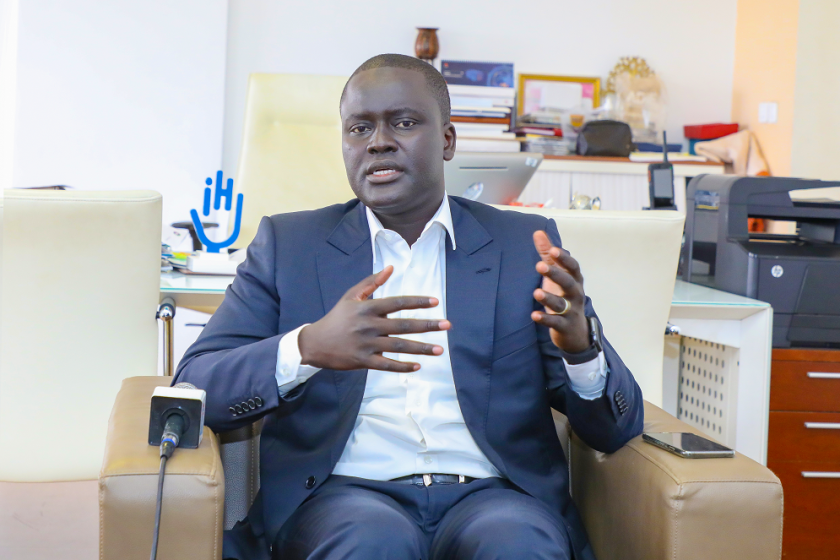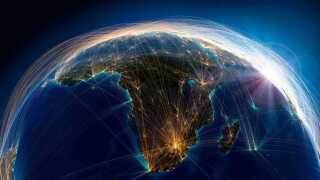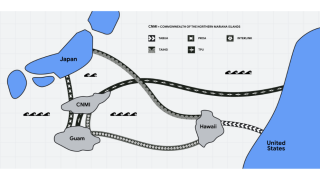Owned and operated by Senegalese government and the Agence De L’informatique del’Etat (ADIE), Sengal's infrastructure agency, the cable is being built in partnership with subsea cable vendor, HMN Tech.
Spanning 720km in length, the SHARE Cable has a total design capacity of 16Tbps connecting Dakar in Senegal to Praia in Cape Verde.
Capacity spoke to Cheikh Bakhoum, CEO and General manager of ADIE on what were the drivers behind the decision to build this new system and what it will mean for the country.
According to Bakhoum, the SHARE Cable aims to "improve and enhance Government and public administration Internet connectivity".
This in turn will also increase Senegal's international capacity connectivity and create much needed resiliency by creating access to existing international digital hubs.
Local telco operators and Internet Services Providers (ISP) are also set to benefit, as at present there is no direct access to existing international cables. Lastly, he says that the cost of Internet will be reduced to the end customer which will also accelerate internet penetration in the country "to reach every citizen".
As with most major infrastructure developments, it creates the potential for new digital interconnection hubs as the ecosystem around it, continues to grow.
"Senegal is the most Western Country on African Continent and the closest Sub-Saharan one to Europe and America," explains Bakhoum.
"With this geographical position, having its own cable offers the country the easiness and flexibility to provide International access to countries not directly open to the Atlantic Ocean. Also, with the capacity available in the SHARE cable, Senegal can offer more Internet bandwidth and resiliency to countries that have access to submarine cables but with limited capacity and no redundancy. "

Interestingly, he shares that aside from Nigeria, Senegal is the only one country in West Africa to have its own submarine cable and that most its telco’s are member of consortiums.
The decision to partner with HMN Tech on the SHARE cable is due to the fact that the system forms part of a larger programme Smart Senegal, and is "contracted by the Senegalese Government with China and is conducted by ADIE with its selected partner Huawei Technologies".
"Huawei Marine Networks is running the SHARE project because of its suitable proposal, its experience of conducting submarine cable project and its ability and agility to integrate several actors and factors," says Bakhoum.
As the property of the Senegalese Government Bakhoum says that "its main goal is to enable and easy Internet access for every citizen all around the country", meaning that the system will operate like a true carriers cable, neutral and available to all.
"This goal can only be achieved by opening the capacity of this infrastructure to all the Telco operators and ISP that give access to the population," he explains. "Of course, the public administration needs will also be satisfied in order to improve its efficiency and help to accelerate its digital transformation."
Adopting the cable landing station approach to its connectivity, there SHARE cable will then have onward interconnections to the various public administration, telco operators and ISP stakeholders, directly from the station "where all of them get already fibre access".
It comes as no surprise that the SHARE Cable project encountered a number of delays due to the Covid-19 pandemic but it also "demonstrated how important it is for a country to get high speed Internet connectivity".
The subsea section aside, the SHARE cable will be connected to the ADIE global fibre optic terrestrial network that covers the entire country.
"To create high availability in the international connectivity segment, SHARE cable plans to provide resiliency to existing international cables and vice versa," says Bakhoum.
Since 2004, Bakhoum says that the Senegalese Government through ADIE has been working to increase the country's digitalisation through a number of instaives.
These include, deploying nationwide fibre optic infrastructure connecting all public administration; developing e-services in order to create an online administration for business, citizens and for its own processes; providing IT equipment’s and tools for public administration employees; and by building Data centres that offer hosting, storage, backup and restoration services.
Looking ahead, and with the implementation of the submarine segment completed, next steps include deploying the terrestrial segment from beach manhole to the cable landing stations, which is due to be finalised by the end of March 2022.
Lastly the cable landing stations are to be upgraded and renewed, due to completed by the end of March or in April 2022.









